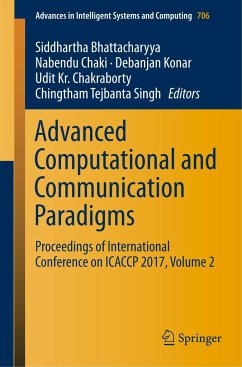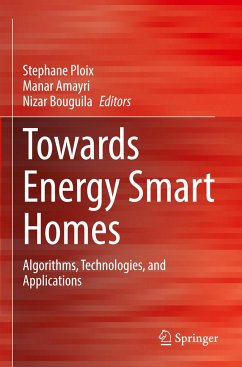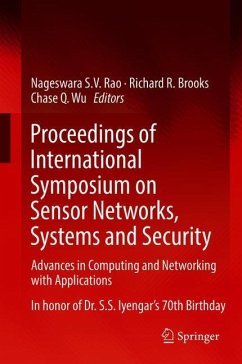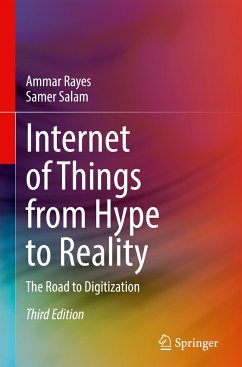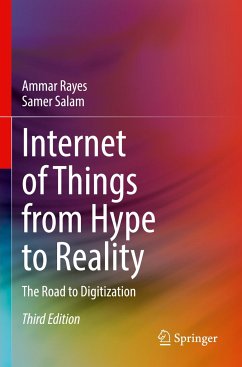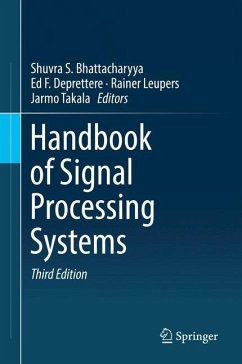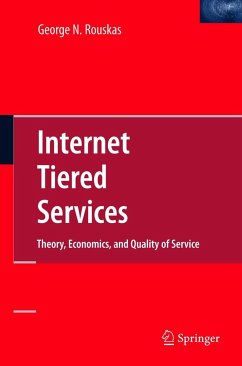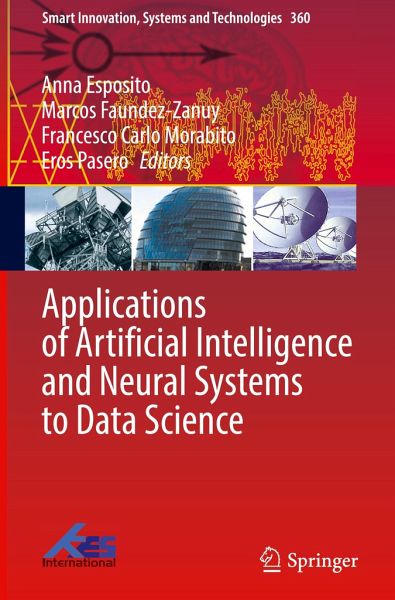
Applications of Artificial Intelligence and Neural Systems to Data Science
Versandkostenfrei!
Versandfertig in 6-10 Tagen
129,99 €
inkl. MwSt.

PAYBACK Punkte
65 °P sammeln!
This book provides an overview on the current progresses in artificial intelligence and neural nets in data science. The book is reporting on intelligent algorithms and applications modeling, prediction, and recognition tasks and many other application areas supporting complex multimodal systems to enhance and improve human-machine or human-human interactions. This field is broadly addressed by the scientific communities and has a strong commercial impact since investigates on the theoretical frameworks supporting the implementation of sophisticated computational intelligence tools. Such tools...
This book provides an overview on the current progresses in artificial intelligence and neural nets in data science. The book is reporting on intelligent algorithms and applications modeling, prediction, and recognition tasks and many other application areas supporting complex multimodal systems to enhance and improve human-machine or human-human interactions. This field is broadly addressed by the scientific communities and has a strong commercial impact since investigates on the theoretical frameworks supporting the implementation of sophisticated computational intelligence tools. Such tools will support multidisciplinary aspects of data mining and data processing characterizing appropriate system reactions to human-machine interactional exchanges in interactive scenarios. The emotional issue has recently gained increasing attention for such complex systems due to its relevance in helping in the most common human tasks (like cognitive processes, perception, learning, communication, and even "rational" decision-making) and therefore improving the quality of life of the end users.






